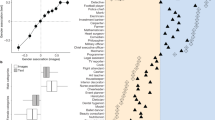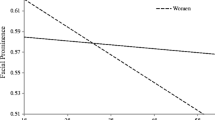Abstract
Search engine bias is a reflex of an overall social system intertwined with discriminatory, prejudiced, or biased practices of different social groups. This paper focuses on the question of ethnic-biased search engine results of European women images. The paper aims to examine whether three culturally diverse search engines (Google, Yandex, and Baidu) will result in different nudity scores for nine EU-27 selected women ethnicities.
For the paper, 100 photos of women from nine EU countries were collected using three different search engines. After that, the nudity score was calculated for the 2700 photos, and the results were compared using suitable statistical methods. The results indicate a statistically significant difference between the search engines regarding the nudity score of the collected photos, whereby we can conclude that the results of the Chinese search engine are the most liberal. At the same time, the other two are more conservative.
Access this chapter
Tax calculation will be finalised at checkout
Purchases are for personal use only
Similar content being viewed by others
References
Crawford, K.: The atlas of AI: Power, Politics, and the Planetary Costs of Artificial Intelligence. Yale University Press, New Haven (2021)
Cetina, K.K.: Culture in global knowledge societies: knowledge cultures and epistemic cultures. Interdisc. Sci. Rev. 32, 361–375 (2007)
Savoldi, B., Gaido, M., Bentivogli, L., Negri, M., Turchi, M.: Gender bias in machine translation. Trans. Assoc. Comput. Linguist. 9, 845–874 (2021)
Jones, J.J., Amin, M.R., Kim, J., Skiena, S.: Stereotypical gender associations in language have decreased over time. Sociol. Sci. 7, 1–35 (2020)
Draude, C., Klumbyte, G., Lücking, P., Treusch, P.: Situated algorithms: a sociotechnical systemic approach to bias. Online Inf. Rev. 44, 325–342 (2020)
Vlasceanu, M., Amodio, D.M.: Propagation of societal gender inequality by internet search algorithms. Proc. Natl. Acad. Sci. 119, e2204529119 (2022)
Goffman, E., Goffman, E.: Gender display. In: Gender Advertisements, pp. 1–9 (1976)
Friedman, B., Nissenbaum, H.: Bias in computer systems. ACM Trans. Inf. Syst. (TOIS) 14, 330–347 (1996)
Noble, S.U.: Algorithms of oppression. In: Algorithms of Oppression, New York University Press, New York (2018)
Schwemmer, C., Knight, C., Bello-Pardo, E.D., Oklobdzija, S., Schoonvelde, M., Lockhart, J.W.: Diagnosing gender bias in image recognition systems. Socius 6, 2378023120967171 (2020)
Crawford, K.: Can an algorithm be agonistic? Ten scenes from life in calculated publics. Sci. Technol. Hum. Values 41, 77–92 (2016)
Silva, S., Kenney, M.: Algorithms, platforms, and ethnic bias. Commun. ACM 62, 37–39 (2019)
Hofstede, G.H., Hofstede, G.: Culture’s consequences: comparing values, behaviors, institutions and organizations across nations, sage (2001)
Foucault, M.: “panopticism” from” discipline & punish: The birth of the prison. Race/Ethnicity: Multidisciplinary Global Contexts 2, 1–12 (2008)
Foucault, M.: The History of Sexuality: The Use of Pleasure, vol. 2. Vintage, New York (2012)
Elias, N.: The Civilizing Process: The History of Manners: Sociogenetic and Psychogenetic Investigations, Trans. Edmund Jephcott. Basil Blackwell, Oxford (1978)
Smith, H.W.: A modest test of cross-cultural differences in sexual modesty, embarrassment and self-disclosure. Qual. Sociol. 3, 223–241 (1980)
Hetsroni, A.: Sexual content on mainstream TV advertising: a cross-cultural comparison. Sex Roles 57, 201–210 (2007)
Huang, Y., Lowry, D.T.: An analysis of nudity in Chinese magazine advertising: examining gender, racial and brand differences. Sex Roles 66, 440–452 (2012)
Bordo, S.: Unbearable weight: femisisn, western culture, and the body (1993)
Butler, J.: Gender trouble: feminism and the subversion of identity GT. Pol. Theory 4, 4–24 (2005)
Cover, R.: The naked subject: nudity, context and sexualization in contemporary culture. Body Soc. 9, 53–72 (2003)
Zito, A., Barlow, T.E., Barlow, T.E.: Body, Subject, and Power in China. University of Chicago Press, Chicago (1994)
Barta, P.I.: Gender and sexuality in Russian civilization. Routledge, London (2013)
Ananthram, A.: Comparison of the best NSFW Image Moderation APIs 2018. Towards Data Science, 22 November 2018. https://towardsdatascience.com/comparison-of-the-best-nsfw-image-moderation-apis-2018-84be8da65303. Accessed 7 Jan 2023
Garcia, M.B., Revano, T.F., Habal, B.G.M., Contreras, J.O., Enriquez, J.B.R.: A pornographic image and video filtering application using optimized nudity recognition and detection algorithm. In: 2018 IEEE 10th International Conference on Humanoid, Nanotechnology, Information Technology, Communication and Control, Environment and Management (HNICEM) (2018)
Moreira, D.C., Pereira, E.T., Alvarez, M.: PEDA 376K: a novel dataset for deep-learning based porn-detectors. In: 2020 International Joint Conference on Neural Networks (IJCNN) (2020)
Huang, Y., Kong, A.W.K.: Using a CNN ensemble for detecting pornographic and upskirt images. In: 2016 IEEE 8th International Conference on Biometrics Theory, Applications and Systems (BTAS) (2016)
Li, K., Xing, J., Li, B., Hu, W.: Bootstrapping deep feature hierarchy for pornographic image recognition. In: 2016 IEEE International Conference on Image Processing (ICIP) (2016)
Ou, X., Ling, H., Yu, H., Li, P., Zou, F., Liu, S.: Adult image and video recognition by a deep multicontext network and fine-to-coarse strategy. ACM Trans. Intell. Syst. Technol. (TIST) 8, 1–25 (2017)
Surinta, O., Khamket, T.: Recognizing pornographic images using deep convolutional neural networks. In: 2019 Joint International Conference on Digital Arts, Media and Technology with ECTI Northern Section Conference on Electrical, Electronics, Computer and Telecommunications Engineering (ECTI DAMT-NCON) (2019)
Zhou, K., Zhuo, L., Geng, Z., Zhang, J., Li, X.G.: Convolutional neural networks based pornographic image classification. In: 2016 IEEE Second International Conference on Multimedia Big Data (BigMM) (2016)
Kumar Thakur, R.: Detect Nudes Using Python Programming and Deep AI, Medium, 10 April 2022. https://medium.com/geekculture/detect-nudes-using-python-programming-and-deep-ai-a9be69b2e9af. Accessed 4 Jan 2023
Woodie, A.: Yahoo Shares Algorithm for Identifying ‘NSFW’ Images, datanami, 3 Oct 2016. https://www.datanami.com/2016/10/03/yahoo-shares-algorithm-identifying-nsfw-images/. Accessed 7 Jan 2023
Author information
Authors and Affiliations
Corresponding author
Editor information
Editors and Affiliations
Rights and permissions
Copyright information
© 2023 IFIP International Federation for Information Processing
About this paper
Cite this paper
Dokic, K., Pisker, B., Paun, G. (2023). How Search Engines See European Women. In: Edelmann, N., Danneels, L., Novak, AS., Panagiotopoulos, P., Susha, I. (eds) Electronic Participation. ePart 2023. Lecture Notes in Computer Science, vol 14153. Springer, Cham. https://doi.org/10.1007/978-3-031-41617-0_8
Download citation
DOI: https://doi.org/10.1007/978-3-031-41617-0_8
Published:
Publisher Name: Springer, Cham
Print ISBN: 978-3-031-41616-3
Online ISBN: 978-3-031-41617-0
eBook Packages: Computer ScienceComputer Science (R0)





